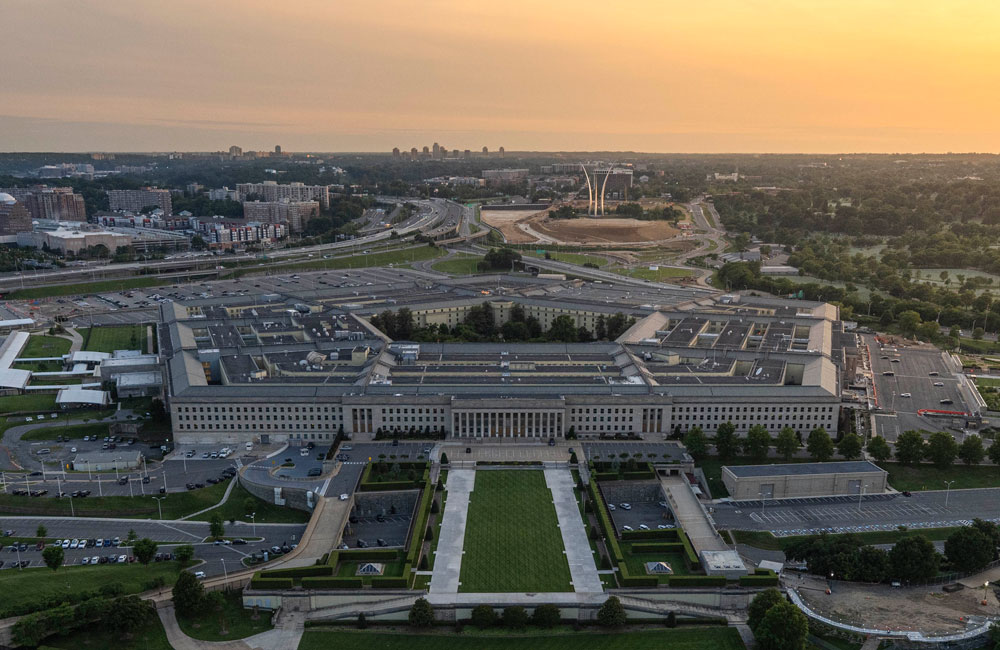Developing: Federal Agencies Take Action on COVID-19 Prevention Efforts
Several confirmed cases in DC area are prompting federal government to implement emergency working procedures.

With D.C. reporting 10 patients contracting COVID-19 plus others in the surrounding metro area, federal government agencies are increasingly weighing their response efforts to prevent spread of the virus. This list will be continuously updated as more agencies release further guidance.
The Office of Personnel Management is reminding departments and agencies of various flexibilities available to assist in their responses to COVID-19, which include incorporating telework in their continuity of operations, according to a published memorandum. The department, along with the Office of Management and Budget, will host interagency calls to address human-resources questions and issues that arise from these efforts.
The Securities and Exchange Commission became the first federal agency to require some of its employees to telework after an employee is being tested for the virus, according to an internal email obtained by The Washington Post.
The Defense Health Agency is “taking seriously” a presumptive positive of COVID-19, according to an internal email obtained by GovernmentCIO Media & Research and a source at the agency. That person’s work area is being cleaned and everyone who came into contact with the individual has been notified, the email said. “A U.S. Navy civilian employee at the US Navy Bureau of Medicine and Surgery (BUMED) in Falls Church, VA tested ‘presumptive positive’ for the coronavirus (COVID-19), marking the first positive case of a U.S. Navy civilian in Virginia. The individual is currently at a hospital in Northern Virginia under medical care in accordance with the Centers for Disease Control and Prevention Guidelines. The positive test result is considered a presumptive positive, pending confirmatory testing by CDC,” according to a press release. “Additional precautionary measures may be taken.”
Federal Emergency Management Agency Chief Component Human Capital Officer Karen Filipponi said March 10 that she has meetings “5 times a day” about COVID-19, and the agency has calls with the Department of Homeland Security headquarters seven days a week on the matter. She also pointed out that changes to the OPM telework guidelines due to unusual circumstances have to go through FEMA first and said that those changes are currently under review at FEMA.
The Department of Veterans Affairs has activated its emergency management coordination cell and is “prepared to protect and care for veterans who receive their health care from VA,” according to a posting on its website. Secretary Robert Wilkie also issued a memo outlining only mission-critical VA travel will be authorized.
The Defense Department‘s memorandum advises leaders to allow employees to work from home and outlines how to maintain consistent lines of communication and reporting throughout all stages of anyone possibly contracting the virus — before, during and after. It also has implemented travel restrictions for all non-essential personnel effective March 13 for 60 days.
At the Department of Homeland Security, Chief Human Officer Angela Nailey said it takes seriously the health of both its employees and entrants to the U.S. — its mission — regardless of the disease. “[Migrants are] coming from countries that do not have a health care system like we have,” Bailey said. “So it’s a) how do you protect the workforce that’s going to encounter [infected people], and b) how do you help stabilize that situation so that we don’t have community-wide spread, and how do we protect the migrants themselves?” The department has heightened guidance about particular safety precautions among personnel.
Bailey added that the internal response at DHS is coordinated by the occupational safety and health office in cooperation with teams at each component agency. This coordination includes both practical guidance on N95 respirators and employee distancing as well as broader planning on continuance of operations.
“We have a fantastic relationship between the doctors, the safety and health professionals, and the operational folks,” she said. “Because [each] mission is different, how they interact with the public is different. There will never be a one-size-fits-all [solution] — it will all be operationally driven as to how we protect each of those individuals.”
Citizenship and Immigration Services is implementing a nationwide telework policy to allow its personnel to work in a more agile environment, according to a letter submitted to the American Federation of Government Employees. “Determinations whether existing or proposed remote work agreements are in the best interest of USCIS, whether an employee is eligible to participate in the Remote Work Program, and whether the agency should enter into a remote work agreement with an employee will be made by management,” the letter said.
On March 19, a representative from USCIS said, “To protect our workforce and to help mitigate the spread of Coronavirus Disease (COVID-19) in our communities, USCIS is suspending all face-to-face services with applicants at all of our offices, including all interviews and naturalization ceremonies, effective March 18 until at least April 1. This includes field offices, asylum offices and Application Support Centers. Employees in these offices will continue mission-essential services that do not require face-to-face contact with the public. We continue to monitor this evolving pandemic and remain prepared to take difficult, but necessary, steps in order to protect the health and safety of our employees, applicants and the nation.”
This is a carousel with manually rotating slides. Use Next and Previous buttons to navigate or jump to a slide with the slide dots
-

How TMF is Helping Agencies Accelerate Tech Modernization
The program launched a new AI pilot to expedite TMF applications as agency leaders urge more to consider applying for funds.
4m read -

Defense Board to Pitch Solutions for Closing Tech Talent Gaps
Defense Innovation Board members cite need to modernize people management the same way government modernizes technology.
4m read -

How Agencies are Upskilling the Workforce in AI
Federal officials are putting in place new training and education methods to ensure its overall workforce understands the technology.
3m read -

A Prepared Workforce is Key to Cyber Resiliency
Strong training strategies and emphasizing cyber hygiene basics enhance security practices at federal agencies.
2m read



